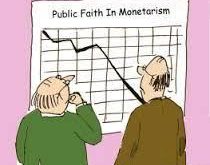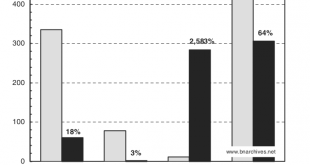from Lars Syll Kenneth Rogoff of Harvard recently argued that fiscal stabilization policy “is far too politicized to substitute consistently for modern independent technocratic central banks.” But instead of considering how this defect might be overcome, Rogoff sees no alternative to continuing with the prevailing monetary-policy regime – despite the overwhelming evidence that central banks are unable to play their assigned role. At least fiscal policy might in principle be up to the task...
Read More »Cross-country comparisons of wealth
from Asad Zaman This continues a sequence of posts on how objective looking statistics conceal hidden values, because a positivist approach prohibits open expression and discussion of value judgments. Previous posts in the sequence are: Lies, Damned Lies, and Statistics, Subjectivity Concealed in Index Numbers, and The Values of a Market Society. Countries compete with each other on the GDP numbers, without any awareness of the values which are embodied in such competitions. Such...
Read More »Paul Romer explains what went wrong with economics
from Lars Syll Economists cannot simply dismiss as “absurd” or “impossible” the possibility that our profession has imposed total costs that exceed total benefits. And no, building a model which shows that it is logically possible for economists to make a positive net contribution is not going to make questions about our actual effect go away. Why don’t we just stipulate that economists are now so clever at building models that they can use a model to show that almost anything is...
Read More »The values of a market society
from Asad Zaman Continued from previous post on Subjectivity Concealed in Index Numbers. Because modern epistemology rejects values as being just opinions, and only accepts facts as knowledge, values have be to disguised in the shape of facts. What better way to do this than by embodying them in cold hard and indisputable numbers? This post discussed how the GDP embodies the values of a market society. From the sixteenth to the eighteenth century, the values of European societies were...
Read More »We need a ‘Fridays for Keynesianism’ movement!
from Lars Syll Basically, the classical model is a model for a corn economy: households decide whether to consume the corn or to save it. If it is saved it can be supplied to investors who sow the grains, repaying to the households one period later the credit amount plus interest. In the Keynesian model the ‘funds’ exchanged on the capital market are made up of money—‘funds’ are bank deposits. Funds are not created here by a renunciation of consumption but by the banks granting credit …...
Read More »Wealth has always been about power
What has confused economists for centuries is that they’ve focused on what’s inside the fence of property rights, not the fence itself. And who can blame them? Historically, the things that were owned were easy to see. In contrast, the act of ownership — the institutional fence of private property — was abstract. And so economists tied wealth to property, not the property-rights fence. The confusion dates back to the physiocrats. They saw agricultural land and proposed that it was the...
Read More »ecoslim2
Subjectivity concealed in index numbers
from Asad Zaman This continues from the previous post on Lies, Damned Lies, and Statistics. More than 1.5 million copies sold, more than all other textbooks of statistics combined. Online copy The vast majority of our life experience is built upon knowledge which cannot be reduced to numbers and facts. Our hopes, dreams, struggles, sacrifices, what we live for, and what we are ready to die for – none of these things can be quantified. However, as we have discussed, logical positivists...
Read More »What is truth in economics?
from Lars Syll In my view, scientific theories are not to be considered ‘true’ or ‘false.’ In constructing such a theory, we are not trying to get at the truth, or even to approximate to it: rather, we are trying to organize our thoughts and observations in a useful manner. Robert Aumann What a handy view of science … How reassuring for all of you who have always thought that believing in the tooth fairy make you understand what happens to kids’ teeth. Now a ‘Nobel prize’ winning...
Read More »But more of what?
Source: Nitzan and Bichler, Capital as Power In 2005, Microsoft’s market value was 2,583% greater than that of General Motors. Mainstream economists would say that Microsoft therefore had more property than GM. But more of what? Nitzan and Bichler point out that when we look under the hood of market value, there’s nothing ‘real’ to back it up. Microsoft, for instance, has only 18% as many employees as GM. And it owns only 3% as much equipment (in dollar terms). So is this a...
Read More » Real-World Economics Review
Real-World Economics Review







